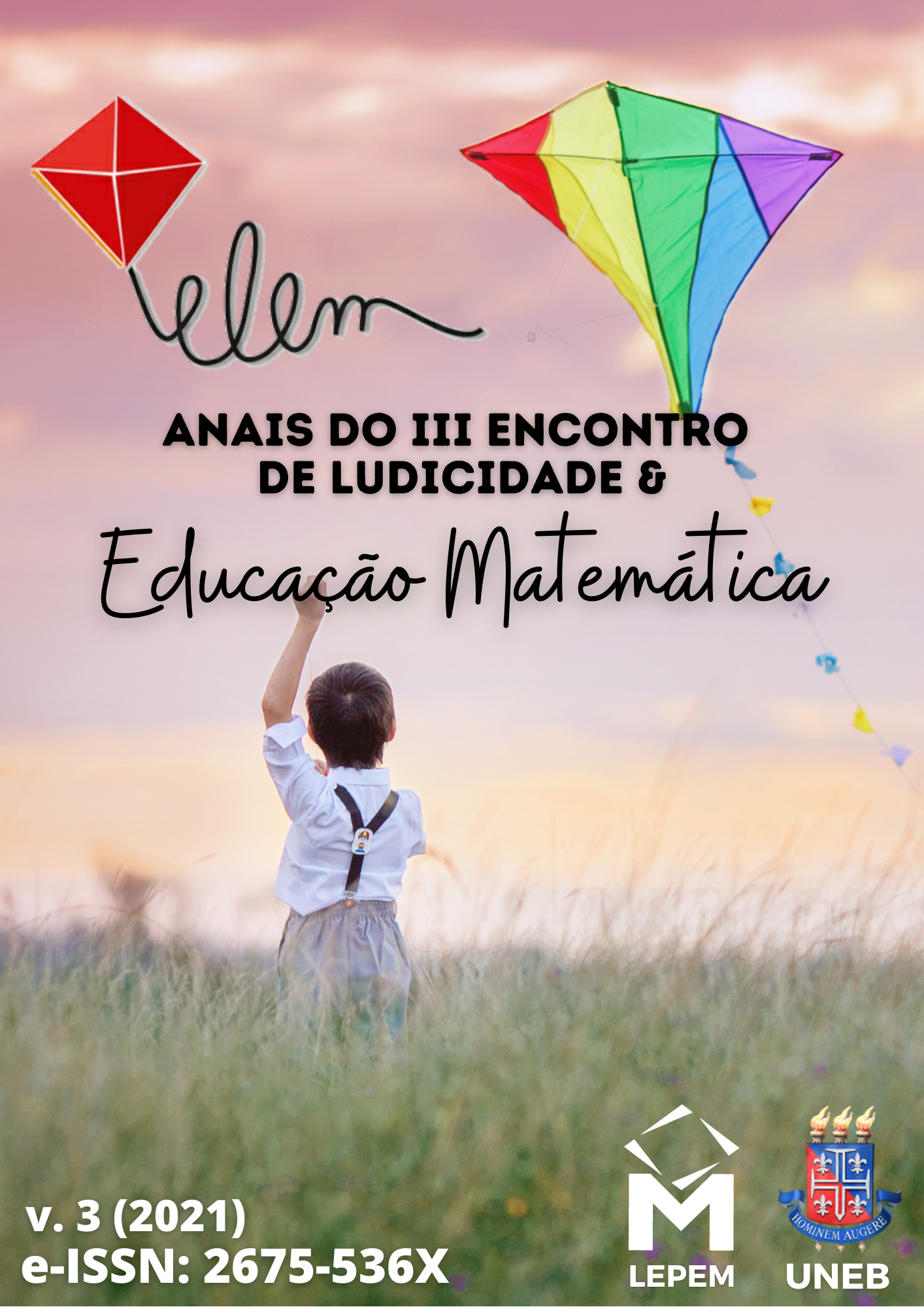an experience report on PIBID during remote classes in a State Public School in Belém of Pará
Keywords:
Mathematics Education. Technologies. Teaching TrendAbstract
This article seeks to report an experience lived by PIBID monitors, during a mathematics activity developed during remote classes on the interactive platform "Wordwall", for 2nd year high school students in a state public school in Belém do Pará. The theoretical foundation used is based on the authors: Confortin (2020) Morais (2003); Lopes (2009); Novoa (2009); Tesch (1996); Vygotsky (1984). In the methodological process, we use the Information and Communication Technologies (ICT's) environment to develop activities. In addition, this research has a qualitative methodological character, as a critical analysis of the obtained results was carried out. Thus, considering that the Software is a tool to assist in the educational process, the role of the teacher as a mediator of knowledge is indispensable. Thus, the results showed that the activity proved to be valid with regard to the interaction of students and their interest in the discipline, showing the potential gains from the use of technologies in the teaching of Mathematics, thus, this tool and the others that are intended for education are important for the teaching and learning process.
Downloads
References
BRANDT, Celia Finck e MORETTI, Méricles Thadeu (Org.). Ensinar e aprender matemática: Possibilidades para a prática educativa. Ponta Grossa: UEPG, 2016
CONFORTIN, Carolina Krupp. A utilização do celular como ferramenta educacional nas aulas de ciências. Canoas: Enfoque Notre Dame, v. 12, n. 28. 2020.
GARCIA, Vanzetto e CLOTILDE, Vera. Fundamentação Teórica para as perguntas primárias: O que é matemática? Porque ensinar? Como se ensina e como se aprende? 2. Ed. Rio Grande do Sul: EDUCAÇÃO, 2009. 32 v.
GUIMARÃES, Mauro; FONSECA, Lana Claudia; OLIVEIRA, Lia Maria. T. de; SOARES, Ana Maria Dantas. A pesquisa na formação do educador ambiental. Ensino, Saúde e Ambiente - REMPEC, v. 3, n. 3, p.15-26, 2010.
INTELIGÊNCIA ARTIFICIAL: Plataformas adaptativas trazem novas perspectivas para a educação. Canoas- RS: Enfoque Notre Dame, n. 28, jun. 2020.
LOPES, Rita de Cássia Soares. A relação professor aluno e o processo ensino aprendizagem. 2009. Disponível em:< http://www.diaadiaeducacao.pr.gov.br/portals/pde/arquivos/1534-8.pdf >. Acesso em: 14 jun. 2021.
MORAIS, Romamel Xenofonte Teles. Software educacional: A importância de sua avaliação e do seu uso nas salas de aula. 52f. Monografia (Graduação em Ciências da Computação), Faculdade Lourenço Filho, 2003. p. 22-24.
NÓVOA, Antônio. Professores: Imagens do futuro presente. Lisboa: Educa, 2009
SILVA, Aparecida Francisco da; KODAMA, Helia Matiko Yano. Jogos no Ensino de Matemática. In: II BIENAL DA SOCIEDADE BRASILEIRA DE MATEMÁTICA, 2004, Universidade Federal da Bahia. II Bienal da SBEM. Salvador: SBEM, 2004, p. 1-19.
TESCH, Renata. Qualitative Research: Analysis Types and Software Tolls. New York: The Falmer Press, 1990, 329 pp.
VYGOTSKY, Lev Semionovitch. A formação social da mente. São Paulo: Martins Fontes, 1984.
Downloads
Published
How to Cite
Issue
Section
License
Uma nova publicação de artigo anteriormente publicado nos Anais do Encontro de Ludicidade e Educação Matemática, fica sujeita à expressa menção da precedência de sua publicação neste periódico, seguindo as normas de referência. Autores que publicam nos Anais do ELEM concordam com os seguintes termos:
-
O Conselho Editorial se reserva ao direito de efetuar, nos originais, alterações de ordem normativa, sintática, ortográfica e bibliográfica com vistas a manter o padrão culto da língua, respeitando, porém, o estilo dos autores. As provas finais poderão ou não ser enviadas aos autores.
-
Autores mantém os direitos autorais e concedem à revista o direito de primeira publicação, com o trabalho simultaneamente licenciado sob a Licença Creative Commons Attribution (CC BY-NC-SA).
-
Autores têm autorização para assumir contratos adicionais separadamente, para distribuição não-exclusiva da versão do trabalho publicada nos Anais do ELEM; exemplo: publicar em repositório institucional ou como capítulo de livro, com reconhecimento de autoria e publicação inicial nos Anais do ELEM.
-
Autores têm permissão e são estimulados a publicar e distribuir seu trabalho online — em repositórios institucionais, página pessoal, rede social ou demais sites de divulgação científica.





